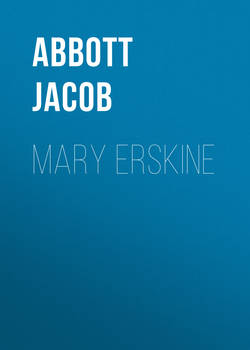Mary Erskine

Реклама. ООО «ЛитРес», ИНН: 7719571260.
Отрывок из книги
The development of the moral sentiments in the human heart, in early life,—and every thing in fact which relates to the formation of character,—is determined in a far greater degree by sympathy, and by the influence of example, than by formal precepts and didactic instruction. If a boy hears his father speaking kindly to a robin in the spring,—welcoming its coming and offering it food,—there arises at once in his own mind, a feeling of kindness toward the bird, and toward all the animal creation, which is produced by a sort of sympathetic action, a power somewhat similar to what in physical philosophy is called induction. On the other hand, if the father, instead of feeding the bird, goes eagerly for a gun, in order that he may shoot it, the boy will sympathize in that desire, and growing up under such an influence, there will be gradually formed within him, through the mysterious tendency of the youthful heart to vibrate in unison with hearts that are near, a disposition to kill and destroy all helpless beings that come within his power. There is no need of any formal instruction in either case. Of a thousand children brought up under the former of the above-described influences, nearly every one, when he sees a bird, will wish to go and get crumbs to feed it, while in the latter case, nearly every one will just as certainly look for a stone. Thus the growing up in the right atmosphere, rather than the receiving of the right instruction, is the condition which it is most important to secure, in plans for forming the characters of children.
It is in accordance with this philosophy that these stories, though written mainly with a view to their moral influence on the hearts and dispositions of the readers, contain very little formal exhortation and instruction. They present quiet and peaceful pictures of happy domestic life, portraying generally such conduct, and expressing such sentiments and feelings, as it is desirable to exhibit and express in the presence of children.
.....
"One day," continued Beechnut, "Sligo was walking about the house, trying to find something to do. She came into the parlor. There was nobody there. She looked about a little, and presently she saw a work-basket upon the corner of a table, where Arabella's mother had been at work. Sligo began to look at the basket, thinking that it would make a good nest for her to sleep in, if she could only get it under the clock. The clock stood in a corner of the room.
"Sligo accordingly jumped up into a chair, and from the chair to the table, and then pushing the basket along nearer and nearer to the edge of the table, she at last made it fall over, and all the sewing and knitting work, and the balls, and needles, and spools, fell out upon the floor. Sligo then jumped down and pushed the basket along toward the clock. She finally got it under the clock, crept into it, curled herself round into the form of a semicircle inside, so as just to fill the basket, and went to sleep.
.....